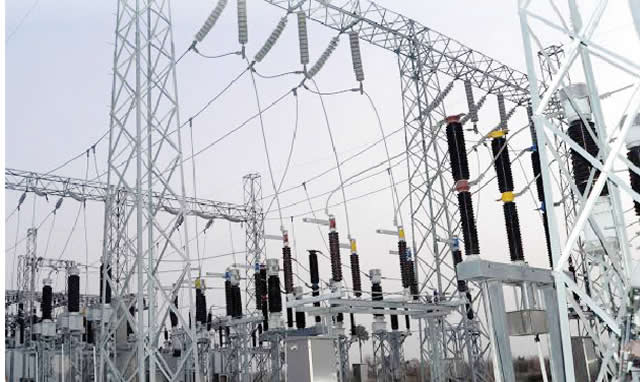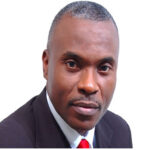
With the newly increased electricity tariffs and stable market indices, the income of the electricity distribution companies may swell in 2023, OPEOLUWANI AKINTAYO writes
The complaints that have often characterised the revenues of electricity distribution companies may begin to reduce this year, as they look forward to increased earnings following the recent increment of electricity tariffs across the majority of the customer bands in the country.
Discos usually complained that tariffs they were made to charge were not market-reflective, making to run at a loss, which made the government give them approval for an upward review of the electricity tariffs.
Meanwhile, The PUNCH estimation showed that the 11 electricity distribution companies may double their revenues and rake in combined earnings of around N6tn in electricity sales this year.
The Nigerian Electricity Regulatory Commission’s newly released report titled ‘Discos’ Energy Sales by Service Band Data for 2022’ put revenue on electricity sales last year at about N597bn.
If the tariffs were not increased, experts projected utility firms’ revenue for 2023 would be around N1tn, going by last’s earnings trend.
The Executive Secretary for the Association of Nigerian Electricity Distributors, an umbrella body for all the Discos, Sunday Oduntan, disclosed that the utility firms made as much as N777bn in the first quarter of 2022.
Going by Oduntan’s revenue claim, which was at variance with that of NERC, it means that at the end of 2022, the Discos could have made around N3tn.
And with the hike in electricity tariffs, the Discos may rake in as much as N6tn this year.
Meanwhile, NERC has not released any data on how much each customer category would pay.
Data collected from NSERC’s latest report puts the amount charged per kWh on each of the Band at- Lifeline at N15.29, Band A- non-MD, N60.62, Band A- Maximum Demand 1 at N64.44, Band A- Maximum Demand 2 at N64.52, Band A- Maximum Demand 3/Bileteral at N60.52 as of December. Other rates were Band B-non-maximum demand at N57.75, Band B-Maximum demand 1 at N57.91, Band B-maximum demand 2 at N59.40, and Band C-Non maximum demand 2 at NN59.40.
Customers under the Band C-non maximum demand were billed N53.44 per kWh as of last year, Band C- Maximum demand 1 got N54.45, Band C-maximum demand 2, N63.80 per kWh.
For Band D customers-non-maximum demand paid N36.14 per kWh, Band D-maximum demand 1 paid NN49.97, while Band D-maximum demand 2 paid N51.75 per kWh.
On their part, non-maximum demand customers paid N37.42 per kWh, Band E-maximum demand 1 paid N47.46 per kWh, while Band E-maximum demand 2 paid N47.61 per kWh.
However, from available data, it was discovered that the Discos were not able to collect full charges per kWh from all customers under each of the bands.
NERC’s estimation of March 2022 put the number of registered customers under all the Discos at 12,542,581.
But neither the utility firms nor NERC has released official statistics on how many customers are currently under each of the bands, and how much tariff increment was made on each of them.
A Twitter user, Oyibo Ediri, had accused the Abuja Electricity Distribution Company of quietly increasing the tariff in December, alleging that the firm raised the rate for non-maximum demand customers by N12.65.
“AEDC has quietly increased the cost of electricity. Cost increased from N57.55 in December to N68.2 for tariff band A non-MD. No official statement from @aedcelectricity or @NERCNG on the increase. These people won’t stop to fleece us,” the Twitter user stated.
By estimation, the differential comes to about N11 or a 19 per cent hike. Although Ediri stated he was under Band A, however, checks by The PUNCH revealed the tariff he quoted fell under one of the Band B categories.
Reacting to the price hike, a resident of a Lagos highbrow estate, Oye Sola, lamented the increase.
He said, “Electricity tariff is now N72.2 per unit. Another price hike from N66. I suspect they are going to N100. A higher price for poorer services”, he tweeted but did not state which of the bands he belonged to. However, checks by The PUNCH showed that N66.1 per kWh fell under the Band A category. Sola received a nine per cent increase in tariff.
Abuja Electricity Distribution Company had stated that the tariff increment was “in compliance with NERC order”.
If the revenue for last year as stated by Oduntan was anything to reckon with, the 11 Discos are expected to earn more than N6tn in 2023 with the increase in tariffs.
The spokesperson for the NERC, Usman Abba ignored calls and messages sent to him on the tariff hike.
However, NERC had in the past said it would carry out a minor review on tariffs every six months based on foreign exchange and inflation rates.
“We will adjust the rate every six months to take care of the foreign exchange component of costs, and also inflation. This is absolutely a very straightforward thing,” NERC Chairman, Sanusi Garba, said during a press briefing.
Although the chairman said the rate might not necessarily be an upward review, Nigeria’s foreign exchange rate has maintained an upward path. Inflation has also remained on the high side, implying that should the indexes continue to go up, the tariff review would follow a similar trend.
Spokespersons for Eko Electricity, Godwin Idemudia; Ikeja Electric, Ayeni Akinola and Ibadan Discos, Busolami Tunwase, all declined to comment on the matter. They directed our correspondent to ANED’s Oduntan.
The PUNCH called the spokesperson for DisCos umbrella body, the Association of Nigerian Electricity Distributors, Sunday Oduntan, he did not respond, and neither did he reply to messages sent to his phone line.
Nonetheless, some factors such as low power allocation, resulting in load shedding, may hamper Discos’ revenue projection this year.
For instance, recently Discos lamented low power supply, which according to them led to load shedding and lower supply to consumers.
The low power supply had been reported across the country for some weeks, with many areas getting as low as one hour per day. An official statement by Ikeja Electric over the weekend said the firm had been shedding load as a result of low power allocation
“We apologise for the current power supply you have been experiencing in certain parts of our network lately. This is due to the inadequate allocation received, hence the load shedding
“We regret the inconvenience this has caused and wish to assure you that we are engaging the responsible stakeholders in the electricity value chain to improve the situation,” Ikeja Electric said in a note to its customers.
Eko Electricity Development Company also issued a similar apology to its customers in Lagos and Ogun States, saying the irregular power supply being experienced was due to reduced load capacity from the National Grid.
The PUNCH also sighted a similar circular from the Kano Electricity Distribution Company, where the firm blamed the low supply on the Gencos.
Load shedding automatically leads to a reduction in the quantity of power sold to consumers, which also translates to low revenue.
The unmetered customers’ apathy towards payment of electricity bills may also impede utility firms’ revenue expectations. NERC in its newly released report for the first quarter of 2022 said Discos’ billing Q1 2022 was reduced by N7.4bn, as revenue collections reduced at a higher rate of about N11bn, 5 per cent lower than what they generated in the corresponding of the previous year.
It noted was imperative for DisCos to employ technologies and operational procedures to increase both their billing and collection performances to forestall long-term financial challenges.
Again, a certain amount of energy generated is usually lost before getting the final consumers. This is because part of the energy generated from the power stations is used in-house to power station equipment, offices, and other facilities.
A fraction of the injected energy is again lost in the transmission system before it is received at the Discos’ metering points and the international customers’ metering points. The energy received by the DisCos is subject to further technical losses (heat along the lines/cables) before reaching the customers.
In addition to technical losses, another reason Discos are unable to record a 100 per cent billing efficiency is their inability to identify energy users — due to poor customer enumeration, low metering, the presence of inaccurate meters, and energy theft.
For instance, a 70 per cent billing efficiency means that for every N10.00 worth of electricity received by Discos during a period, N3.00 worth of energy is not billed by the Discos.
The total energy received by all Discos in Q1 2022 was 7,300.05GWh, the total energy billed was 5,649.21GWh and the billing efficiency was 77 per cent.
In Q1 2022, the total energy bill to end users decreased by 408.57GWh (-7 per cent) from the 6,057.78GWh energy billed by Discos to the end users in Q4 2021. This decrease could be attributed to an 8 per cent drop in total energy received by the DisCos in Q1 2022.
NERC said it was committed to working with Discos to ensure that distribution losses were significantly reduced as part of the efforts toward steering the industry to financial sustainability.




